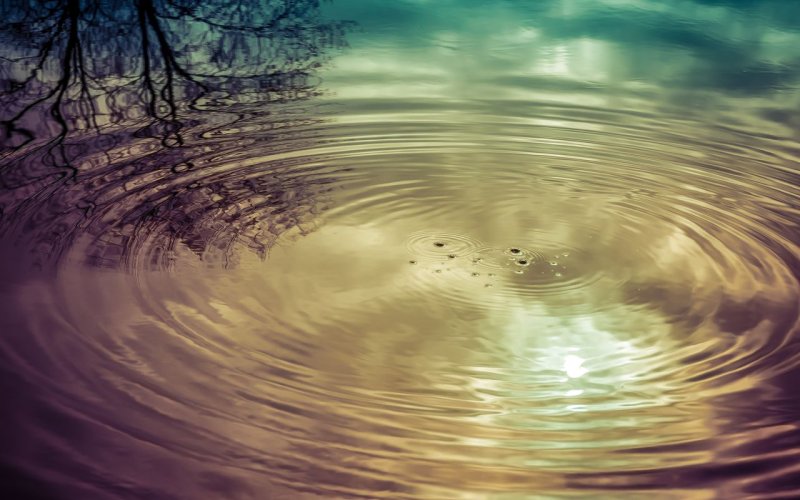When I close myself into a room without windows and turn the light on, where does all that light go when I turn it off again? We could ask a similar question with sound (where does sound disappear when I turn off its source) or with waves in a swimming pool. And I will try to explain all of these issues.
Like sound or waves in water, light is a wave, only in the case of light, it is an electromagnetic wave while sound is a mechanical wave. So if I describe the waves on the water surface, we can imagine the behavior of light in the same way. Instead of a room without windows, we will describe an arbitrarily large swimming pool with water. If we throw a stone into a pool, we will see the waves propagate from the point of impact. Their height determines how intense the waves are (or how loud the sound is or how much light shines). The waves will propagate through the swimming pool and we will see how their height decreases when they touch the edge of the swimming pool the waves will bounce and propagate back.
When they bounce, their height decreases again. Over time, the wave deflection will be so small that we will be no longer able to observe it. The reduction in the height of the waves is caused by the loss of energy — both when bouncing off the swimming pool wall and during the propagation itself. The same phenomena occur with light — there are energy losses caused mainly by reflection and refraction (refraction is the transition of light from the room to the material of walls). We will register a wave reduction in the pool, but with light, it will be completely dark immediately after the source is switched off. How is it possible? This is because light is about 100,000 times faster than waves in water. If 10 seconds elapse between throwing the stone in the swimming pool and the surface calming, the light would dim from extinguishing into darkness in 0.0001 seconds. And we cannot register this with our eyes. I would just like to point out that this is a model example in which I wanted to describe what happens and why, and the times mentioned do not correspond to the real processes.
Want to ask something?
Send us an e-mail with the subject “Physics mysteries” to the address:
We can't wait to tackle your interesting questions!





